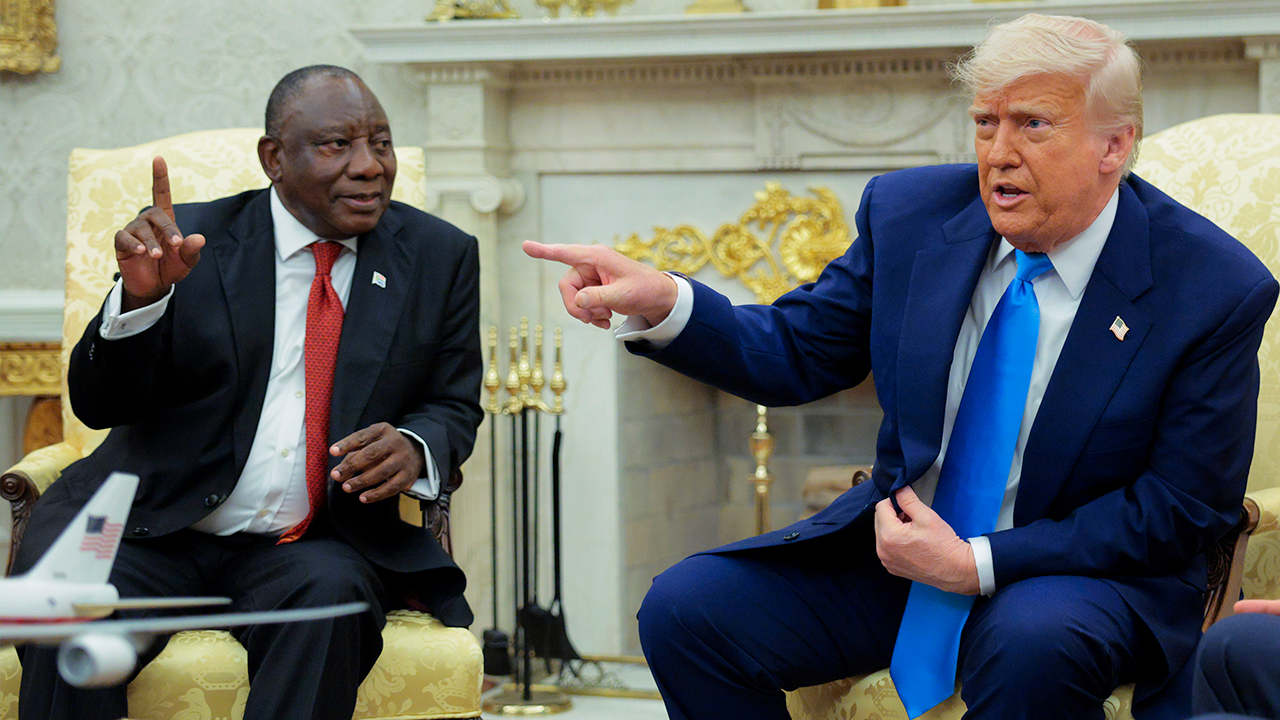President Donald Trump found himself at the center of another heated exchange with the media this week after a reporter asked about a controversial decision by the Department of Defense to accept a jumbo jet from the government of Qatar. The question, posed during a White House press conference alongside South African President Cyril Ramaphosa, prompted a fiery response from the former president, highlighting the ongoing scrutiny surrounding foreign gifts and potential constitutional concerns.
What Happened?
The controversy erupted during a press briefing held on May 21, 2025. As Trump addressed the press following his meeting with President Ramaphosa, an NBC reporter—believed to be Peter Alexander—asked about the Defense Department’s recent decision to accept a Qatari 747 aircraft to serve temporarily as Air Force One.
Rather than addressing the question directly, Trump quickly shifted the conversation, accusing the reporter of trying to distract from the administration’s efforts to highlight alleged human rights abuses against white farmers in South Africa.
He went on to lambast the network and the journalist, saying, “You are a real… you know, you’re a terrible reporter. No. 1, you don’t have what it takes to be a reporter. You’re not smart enough.”
The Bigger Picture: A Jet from Qatar
At the heart of this story is Qatar’s offer of a Boeing 747 aircraft to the United States, which has now been accepted by the Department of Defense. According to officials, the jet is intended to serve as a temporary Air Force One while the delivery of a new fleet of presidential aircraft from Boeing faces delays.
Trump defended the gesture, emphasizing that the aircraft is a gift to the U.S. government—not a personal gift to him. He also noted that the donation was accompanied by a pledge of $5.1 trillion in Qatari investment, although specifics about that claim have yet to be confirmed.
Legal Concerns: What Does the Constitution Say?
Critics on both sides of the aisle have raised questions about the legality of accepting such a gift. At the core of the issue is the Constitution’s Emoluments Clause, which states:
“No Title of Nobility shall be granted by the United States: And no Person holding any Office of Profit or Trust under them, shall, without the Consent of the Congress, accept of any present, Emolument, Office, or Title, of any kind whatever, from any King, Prince, or foreign State.”
This clause was intended to prevent undue influence or corruption of U.S. officials by foreign powers. But there’s ongoing debate about whether it applies to the president.
Expert Insight
Hans von Spakovsky, a senior legal fellow at the Heritage Foundation, offered perspective on the legal implications. According to von Spakovsky, it’s not entirely clear that the Emoluments Clause even applies to the president because the Constitution often explicitly names the office when a rule is meant to apply—such as in the impeachment clause.
Von Spakovsky also argued that if the gift is made to the U.S. government—not to Trump personally—it is likely not a constitutional issue.
Why Now?
The Department of Defense’s decision to accept the Qatari jet appears to be driven by necessity. The current Air Force One fleet is aging—more than 40 years old—and the development of a new fleet has faced significant delays from Boeing. The Trump administration has expressed growing frustration over the timeline, prompting a search for alternative solutions
The Qatari aircraft, then, may serve as a stopgap measure until the new aircraft are ready for deployment.
Political Reactions
While the Trump administration maintains that the jet is a generous and strategic gift, reactions have been mixed. Several members of Congress—both Democrat and Republican—have called for a deeper investigation, citing concerns about national security, foreign influence, and transparency.
One House Democrat has already called for an immediate ethics probe into the matter, questioning whether Trump may have violated the Emoluments Clause and demanding that Congress exercise its oversight authority.
Others are less concerned, pointing out that international cooperation and state gifts are not unusual in diplomatic relationships—especially when managed through proper government channels.
The Media Clash
The press conference underscored the often-hostile relationship between Trump and certain media outlets. The former president’s tirade against the NBC reporter has drawn criticism from media watchdogs and free press advocates, who argue that such confrontations only serve to undermine public trust in journalism.
Trump, however, has long positioned himself as a fierce critic of what he calls the “mainstream media,” accusing outlets like NBC of bias and misrepresentation.
Final Thoughts
This incident is yet another reminder of how quickly complex issues can become politically and emotionally charged. From the constitutional interpretation of foreign gifts to the media’s role in holding leaders accountable, there are multiple layers to this story worth unpacking.
For now, the jet from Qatar remains a symbol of both practical necessity and political controversy. Whether it becomes a footnote in the administration’s logistical efforts—or the subject of further legal and ethical scrutiny—remains to be seen.



